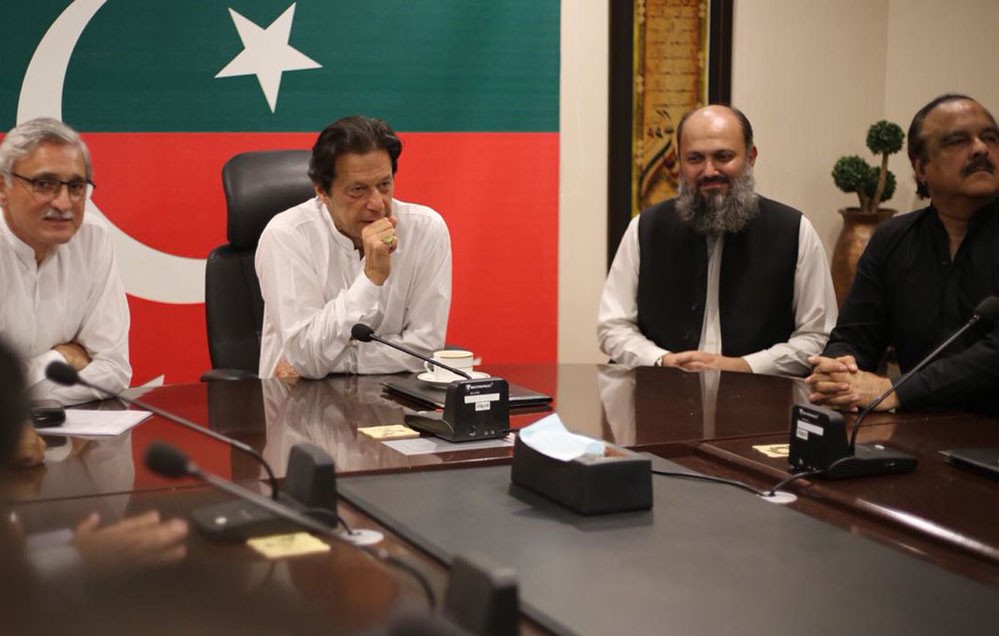
Post-election, once again the security state outlook seems to have prevailed upon political liberty

In Balochistan, history has been honoured more in continuity than in change. Once again the security state outlook seems to have prevailed upon political liberty, the choice of electorates to elect their representatives in a free, fair and an all-inclusive election that is free of influence from undemocratic quarters.
Right from the undoing of the PML-N-led provincial government in a well-thought out power manoeuvre from behind the scenes back in January 2018 to the formation of Balochistan Awami Party (BAP), a party that was cobbled together from turncoats of other political parties especially the PML-N and PML-Q, to the holding of election amidst strong allegations of rigging, a lot seemed choreographed to suit the godfather’s scheme of things. This is not to suggest that the outgoing government was any rebellious either but that from the security state outlook a more docile government was needed.
Seen this way, the Balochistan government just became mirror image of the ‘managed democracy’ which the central government under Prime Minister Imran Khan has come to evince.
The very essence of managed democracy -- the supremacy of state over society, security over liberty, and the de facto executive over its de jure equivalent -- has meant that the façade of democracy just legitimises supremacy of the unelected chief executive over its elected counterpart. Many see BAP president Jam Mir Kamal Khan Alyani’s election as the chief minister of Balochistan a continuation of the security state policy of preferring a vulnerable chief minister who, if he chooses to be rebellious, can be unseated easily. Kamal was a former Member of National Assembly from PML-N and Minister of State for Petroleum and Natural Resources until he quit federal cabinet in April 2018 and joined the newly-formed BAP, the King’s party.
A number of political parties cried foul over election rigging charges though a few, in the context of Balochistan, could not stage a comeback for reasons mainly other than rigging. They are the likes of National Party and Pashtunkhwa Milli Awami Party (PkMAP), the latter having secured not a single seat in the National Assembly while securing only one seat in the provincial assembly. In the case of PML-N, which secured only one provincial assembly seat in Balochistan, down from 21 in the 2013 election, the charge of pre-poll rigging definitely carried much weight. Not everything has been lost in Balochistan, however.
Sardar Akhtar Jan Mengal’s Balochistan National Party Mengal (BNP-M) stands out as a real voice of the aggrieved Baloch. With its five and seven seats in the national and provincial assemblies respectively, the party, in exchange for support to its six-point agenda by the PTI, supported the PTI’s candidates for the positions of prime minister, speaker and deputy speaker of the National Assembly.
In the provincial assembly, BNP-M, along with Muttahida Majlis-e-Amal (MMA), sits on opposition benches. A glance over BNP demands -- tracing of Baloch missing persons, renegotiation of Balochistan’s economic shares, dams construction, honouring of Balochistan six per cent quota in federal services and the repatriation of Afghan refugees -- shows that the party has struck the right chord given Balochistan multifarious socio-economic and political issues.
If political consensus is evolved, the otherwise explosive issue of honourable repatriation of Afghan refugees could be resolved amicably. Within the PkMAP, an understanding is emerging that Afghan immigrants hardly remain a favourable political constituency for the party.
Speculations are making the rounds, not for nothing, that the newly-formed BAP-led government, marred by scramble for ministerial and advisory positions by the desperate lot, might stay in office for three to six months. Then, there are rumours that a BNP-M led government with JUI-F, some members from BAP and independents as a coalition partners would be formed. Up to now, BNP-M has played it safe. No matter whether or not BNP-M leads coalition government, huge responsibilities await the party in the coming months and it will need a delicate balancing act between its ideals and ground realities.
It should identify its six-point agenda as six issue-areas in a way that, while dealing with the state, the absence or lack of cooperation in one issue area does not impinge upon cooperation in other issue areas. Lack of progress, for example, on missing persons issue should not impede progress on issues that are non-security in nature -- the construction of dams for example. People expect service delivery and rightly so.
No less challenging would be meeting the expectations of nationalities beyond Baloch ethnicity. The BNP-M’s claim to be a representative party of whole Balochistan would make sense only if the party integrates the interests of other ethnicities, most importantly Pashtun.
Mind that Baloch-Pashtun divide is chiefly political in essence and hence needs a political remedy. In this context, the central government’s decision to appoint a Pashtun governor -- Dr Ameer Muhammad Khan Jogezai who later declined the offer -- is worth appreciation. Akhtar Jan Mengal should step in to suggest for governorship the name of a Pashtun loyalist who symbolises Baloch-Pashtun unity.
The likes of Malak Abdul Wali Kakar, Senior Central Vice-President BNP-M or Advocate Sajid Tareen, member central executive committee of the party, can be candidates worth consideration. Wali, like his late father Malik Abdul Ali Kakar, has always had steadfast belief in Baloch-Pashtun unity in the face of fierce rivalry from political opponents. Ali, once a political ally of Abdul Samad Khan Achakzai, endured 28 years of imprisonment before and after independence. Similarly, Wali, his nephew Malak Majeed Kakar and the rest of family members survived imprisonment under Zia and Musharraf.
Alternatively, with more than thirty years experience in academia, Prof Dr Masoom Yasinzai, Rector International Islamic University, former Vice-Chancellor Quaid-i-Azam University and University of Balochistan might appear a suitable candidate. Last but not least, the continuity in office of the incumbent governor Muhammad Khan Achakzai should be considered too. After all, the end of integration justifies its means!